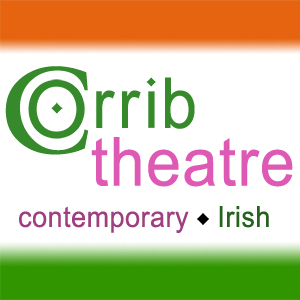Pretty Proud Boy
by Rosaleen McDonagh
Directed by Gemma Whelan∼
May 21 – Jun 20, 2021
An Online Audio Play
A mother and her son at a crossroads — what do we do when those closest to us become violent strangers? Pretty Proud Boy explores the pressing and timely issues of fascist white supremacy, the threat of COVID-19, and the impact of the Black Lives Matter movement, and how these global events have impacted Irish Travellers, an indigenous ethnic minority in Ireland.
Show sponsor: Len and Susan Magazine
Season sponsor: Ronni Lacroute
- World Premiere
- Commissioned by Corrib Theatre
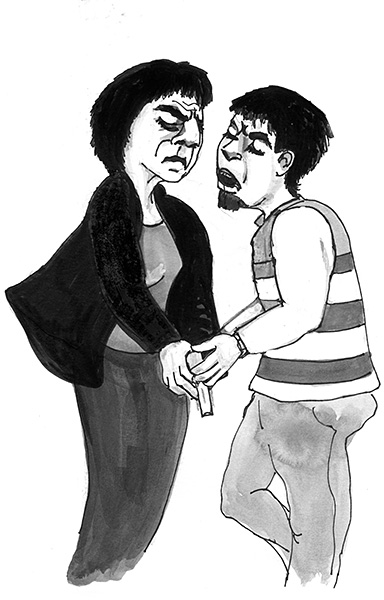
- Running time: 30 minutes
Events:
- May 21: 7:30pm Online launch party with first access to audio play, recorded interview with playwright Rosaleen McDonagh, live post-show discussion, and raffle prize drawing.
- May 22 - June 20: Listen any time
-
Dennis Sparks, All Things Performing Arts
-
Bennett Campbell Ferguson, Willamette Week
About Pretty Proud Boy by Justine Nakase:
In Pretty Proud Boy playwright Rosaleen McDonagh explores a range of pressing and topical issues such as the impact of the Black Lives Matter movement, the rise of fascist white supremacy, the threat of COVID-19, and the challenges of living through a pandemic that enforces (and reinforces) social isolation. While all of these themes are familiar to us here in America, McDonagh dramatizes how these global issues have specifically impacted the Traveller community in Ireland. In doing so, she gives voice to a people that have long been both underrepresented and misrepresented, both on stage and in life.
Travellers (also known as Pavees or Mincéirs) are an indigenous ethnic minority in Ireland. Today there are an estimated 31,000-36,000 Travellers in Ireland, with an additional 15,000 Irish Travellers in Britain and 10,0000 Travellers of Irish descent living in the United States. Travellers have a distinct heritage and culture that includes their own language of Cant, an emphasis on the importance of extended family, and a rich oral tradition. Historically known as tinkers or tinsmiths, Travellers made their living by repairing household items and trading handmade goods and animals across the country.
But what is perhaps most central to Traveller culture and identity is their tradition of nomadism. For centuries Travellers were an itinerant people who moved across Ireland in horse-drawn caravans to find work and trade. Indeed, the majority population in Ireland is contrastingly referred to as the “settled” population. Yet this nomadism—and Travellers in general—were seen as a problem to be solved by the emerging Irish state. In 1963 the Irish government published the Commission on Itinerancy Report, which informed a state policy of forced assimilation for Travellers for the next twenty years. As itinerancy was increasingly criminalized, Travellers were relegated to state-managed halting sites, often with little or no access to basic sanitation, water, and electricity. These issues are ongoing: a 2016 report on Traveller halting sites by the European Committee of Social Rights criticized the Irish state for lack of clean water and drainage, and poor or non-existent sanitary services such as trash collection and proper sewer drainage—living conditions that have exacerbated risk in the current pandemic.
Anti-Traveller racism is also ongoing, as Travellers continue to encounter discrimination both on a systemic and a personal level. Aspects of traditional Traveller culture have been repeatedly criminalized, resulting in the over-policing and institutionalization of Travellers. Health disparities are striking, with lower life expectancies and higher infant mortality rates for the Traveller community. Traveller history—both their contributions to Irish culture and their treatment at the hands of the Irish state—is still not taught in Irish schools. Most troubling, though, is how open anti-Traveller sentiment continues to pass as socially acceptable “common sense” rather than deep-seated racism—by elected officials, the Irish media, and in the settled population in general. In fact, it took over thirty years of Traveller rights campaigning for the Irish state to finally recognize Irish Travellers as an ethnic minority in 2017, and Traveller activists continue to fight for recognition and equality for their communities.
We can find many parallels between the experiences of Travellers in Ireland and those of Indigenous and Black communities in America. So it might be surprising to see David—himself a victim of racism in Ireland—subscribe to the white supremacy promoted by anti-government movements such as the Yellow Vests in Ireland. But that is what is so powerful about McDonagh’s piece—it shows how categories of race and identity are shifting and complex, how disenfranchisement can result in seeking power where you can find it, and how intoxicating the promise of belonging can be to those who feel they have been pushed aside their whole lives.
— Justine Nakase
About the Irish Travellers:
-
“Travellers must be central to conversations about racism”
Kathleen Sherlock, The Irish Times
-
“Travellers were denied the chance to social distance”
Sian Abraham Long and David Friel, Irish Examiner
About the Far Right in Ireland:
-
“The far right rises: Its growth as a political force in Ireland”
Conor Gallagher, The Irish Times
-
“What’s behind the emergence of the far right in Irish politics?”
Kevin Cunningham, RTE
-
“A look inside the angry, fractured world of Ireland’s ‘yellow vests’”
Cormac Fitzgerald, TheJournal.ie
VIDEOS
CAST
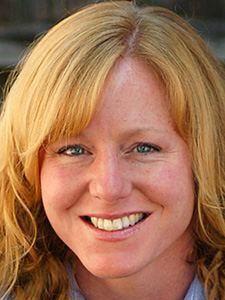
WINNIE
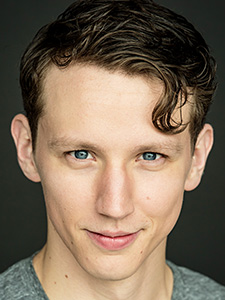
DAVID
CREATIVE TEAM AND CREW
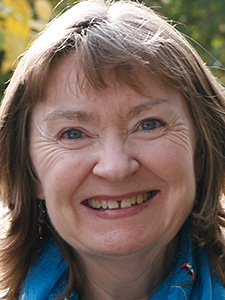
DIRECTOR
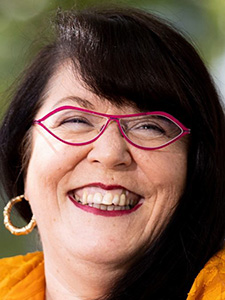
PLAYWRIGHT
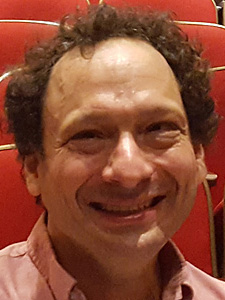
AUDIO
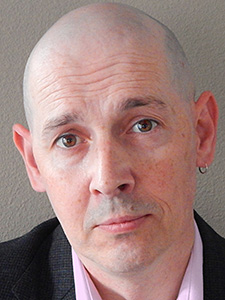
DIALECT COACH
Deanna Wells
Deanna has been a member of the Portland theatre community for the past 25 years, arriving from California after graduating from Pacific Conservatory for the Performing Arts. Dianna’s been seen onstage at Profile Theatre, CoHo, Triangle Productions, Milagro, Northwest Classical Theatre Company, Cygnet Productions, Tyger’s Heart Shakespeare Company, ART, and Corrib Theatre (in Little Gem). She is also a member of The 3rd Floor Sketch Comedy Troupe and Gunhappy Theatrical Ensemble and a founding member of Badass Theatre Company. Deanna is very thankful to the Portland community and her home tribe, Joe and Gabby, for their continuing support of live theatre.
Zak Westfall
Zak’s (they/them/theirs) favorite roles include Calvin in Hot ‘N’ Throbbing (Profile Theatre), and Pentheus in Bakkhai (Shaking the Tree Theatre). They have also worked in the box office at Artists Repertory Theatre. They hope that you are staying safe and healthy and enjoy The Prettiest Proud Boy.
Gemma Whelan
Gemma is the founding Artistic Director of Corrib Theatre. She has extensive experience working on both classical and contemporary works, ranging from Shakespeare, Shaw, Ibsen, Hellman, and Coward, to Arrabal, Mrozek, Sam Shephard, Nilo Cruz, and David Ives, and has directed and assisted in the development of numerous world premieres. For Corrib, she has directed Eclipsed, How to Keep an Alien, Four Last Things, Quietly (Drammy nomination for Best Actor in a Play), Belfast Girls, Chapatti, The Testament of Mary, Our New Girl, Little Gem, The Hen Night Epiphany, St. Nicholas, and A Night in November (Drammy nomination for Direction, Drammy award for Solo Performance). In Portland, she has directed Broomstick and Ithaka at Artists Repertory Theatre, The Call at Profile Theatre, Words that Burn for Los Porteños at Milagro Theatre, and also at CoHo, Boom Arts, and Portland Center Stage’s JAW Festival. She was the founding Artistic Director of Wilde Irish Productions in the San Francisco Bay Area, where she directed The Importance of Being Oscar (Dean Goodman Award for Direction, Dean Goodman Award for Solo Performance), Ariel (US premiere), Someone Who’ll Watch Over Me, Eclipsed, and Endgame. Other favorites include Last Summer at Bluefish Cove (Cable Car Nomination for Outstanding Achievement in Directing) and Vita and Virginia (Curve Magazine, Best Theatre of the Year Award) at Theatre Rhinoceros, Duet for One at Zephyr Theatre, Top Girls at Phoenix Theatre, and Equus at Douglas Morrisson Theatre (Little Theatre Nomination for Outstanding Achievement in Directing). Gemma received the Gerald Duff Award for Continuing Contribution to Theatre in the San Francisco Bay Area. Educational credits include Mills College (Chair, Drama Dept), UC Berkeley, American Conservatory Theatre, Berkeley Rep School of Theatre, Portland Actors Conservatory, Portland State University, Literary Arts (Delve), Pacific University, Willamette University, and Ngee Ann Polytechnic (Singapore). She is an award-winning filmmaker and a published novelist. BA Trinity College Dublin; MA Theatre UC Berkeley; MFA Cinema, San Francisco State University. Member SDC (Stage Directors and Choreographers Society). gemmawhelan.com
Rosaleen McDonagh
Rosaleen McDonagh is a Traveller woman with a disability. Originally from Sligo, she is the fourth eldest in a family of twenty children. She worked at the Pavee Point Traveller and Roma Centre for ten years, managing the Violence Against Women program, and remains a board member. She is a regular contributor to The Irish Times and has written ostensibly within the framework of a Traveller feminist perspective. McDonagh’s work includes the plays Mainstream, The Baby Doll Project, Stuck, She’s Not Mine, and Rings. Rosaleen was commissioned for a feature article in The Irish Times in 2012 responding to Channel 4’s series My Big Fat Gypsy Wedding. In 2013/2014, she worked with Graeae Theatre on its WTP program. As part of this project, she spent two weeks on attachment in The Royal Court Theatre. Her play Mainstream was directed by Olivier Award winner Jim Culleton for Fishamble and the Project Arts Centre in 2016. In 2018, Fishamble produced Rosaleen’s play Running Out of Road in the RHK to mark the first anniversary of Traveller Ethnicity recognition. In 2017, she was elected to Aosdána, an Irish association of artists, and is the first Irish Traveller to receive this honor. Rosaleen was writer in residence with Tuti Theatre Company in Adelaide, Australia, in 2019, and in 2020 she was appointed to the Irish Human Rights and Equality Commission. Rosaleen has a BA in Biblical & Theological Studies, and MPhil in Ethnic & Racial Studies and an MPhil in Creative Writing, all from Trinity College Dublin. She holds a PhD from Northumbria University.
Adam Liberman
Adam first got involved in theatre at Beaverton High School during the era of the amazing James N. Erickson, and went on to get a BA in drama, with an emphasis in lighting design, at the University of Washington (where he also studied film-making). As a major sound designer in the Bay Area, he designed over 40 shows and was a resident designer for many years at Berkeley Jewish Theatre and Lorraine Hansberry Theatre in San Francisco. He also studied acting at the Jean Shelton Acting School (aka Shelton Studios). Adam worked as a technical support engineer and technical writer in audio test and measurement for nearly ten years, and is an expert in audio testing and programming audio test automation. At Liberman Sound, which he has operated for over thirty years, he has designed, maintained, and modified audio equipment for many major motion pictures and TV shows. He also worked for many years as a production sound mixer for feature films, commercials, and documentaries, and in post-production sound as a mix engineer. Adam worked in radio at KPFA for over 15 years, as a news reporter, maintenance engineer, instructor, and on-air board-op. He also has a graduate level certificate in TESOL from UC Berkeley Extension, and has taught English in the US and in Guatemala. He sang songs for social justice in the La Peña Chorus in Spanish for twenty years, where he also co-led musical tours to Cuba, Chile, and Mexico. For Corrib, he has co-led the theatre tours to Ireland. He has also registered students to attend an intensive Spanish language school in Guatemala for the last 20 years. Other areas of expertise include programming (C#, PHP, LabVIEW, Javascript, MySQL, etc), database design, web design, and photography. Adam is a member of AES and IEEE.
Karl Hanover
Karl has been involved in theater in various capacities for the last 25 years. Previous dialect work includes Orlando, Blue Door, Antigone Project, 2.5 Minute Ride, and Twilight: Los Angeles with Profile Theatre; A Christmas Carol and The Language Archive with Portland Playhouse; Hen Night Epiphany, Belfast Girls, Lifeboat, Quietly, Hurl, How To Keep An Alien, and Eclipsed with Corrib Theatre; as well as A Christmas Memory and Miss Bennet: Christmas at Pemberley with Portland Center Stage. He received his M.F.A. in Acting from the National Theater Conservatory in Denver.
∼

The Director is a member of the STAGE DIRECTORS AND CHOREOGRAPHERS SOCIETY, a national theatrical labor union.
